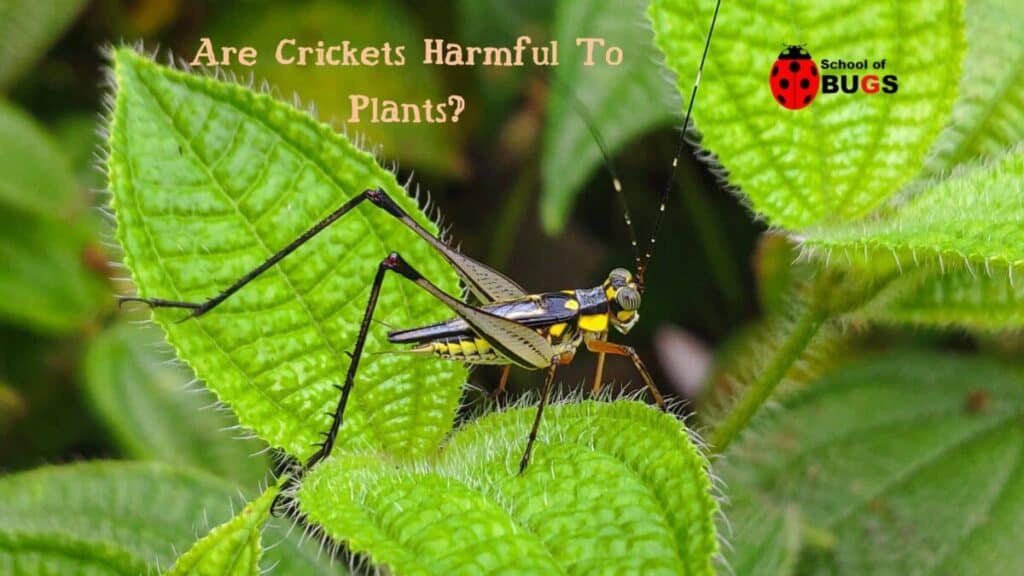
For many, there are few sounds more relaxing than that of a cricket chirp. There is just something about that predictable, rhythmic sound that you can’t help loving.
For gardeners? Well, not so much. They seem to believe that the sound of crickets will spell disaster for their prized garden. They think that crickets are going to be harmful to plants. So, are they?
On this page, we will explore the following:
- Whether crickets are harmful to plants
- Whether it is worth having crickets in your garden
- How you can steer crickets away from certain areas of your garden.
Are Crickets Harmful To Plants?
It depends. The name ‘cricket’ does not refer to just a single animal. There are a variety of different species of cricket. Some of them damaging to plants, others not quite so much. Let’s explain.
Field Crickets
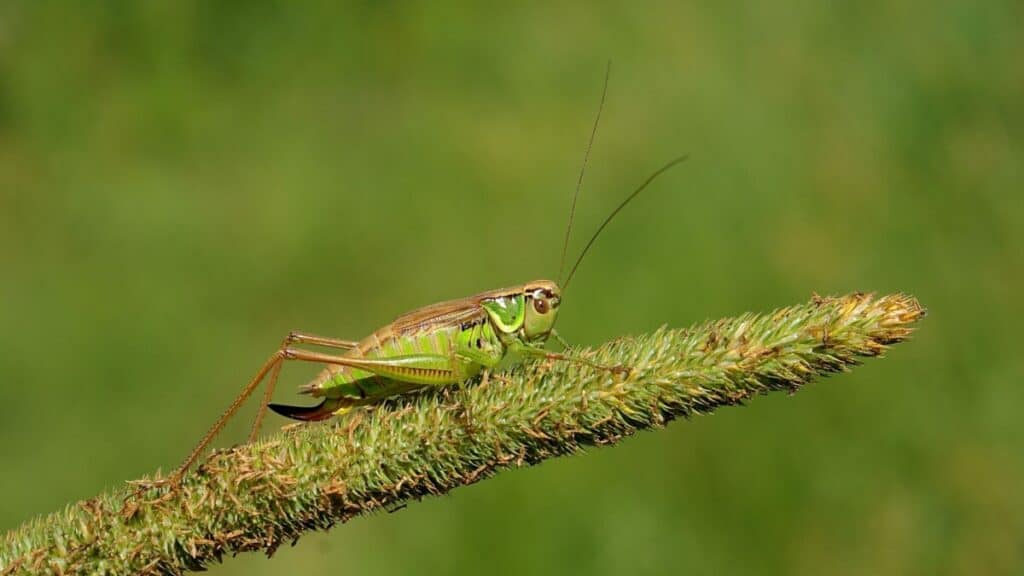
This is your traditional cricket. They are little green fellas, and they are likely to be the crickets that you spot hopping around your garden.
If you hear chirping from your garden, then most of the time, it is going to come from field crickets.
Now, field crickets are omnivores. This means that they eat plants as well as other insects scattered around your garden.
Most of the time, the field crickets are not going to be hopping up and taking a bite of your prized perennials, though.
Other insects will do that, but not field crickets. Field crickets are more in the habit of chowing down on some dead leaves, and maybe eating the odd seed or two.
So, yes. Field crickets are not harmful to plants. They probably will not even bother to touch your plants, though. They would much rather wait for that plant to die off before they have a good chew.
Black Field Crickets
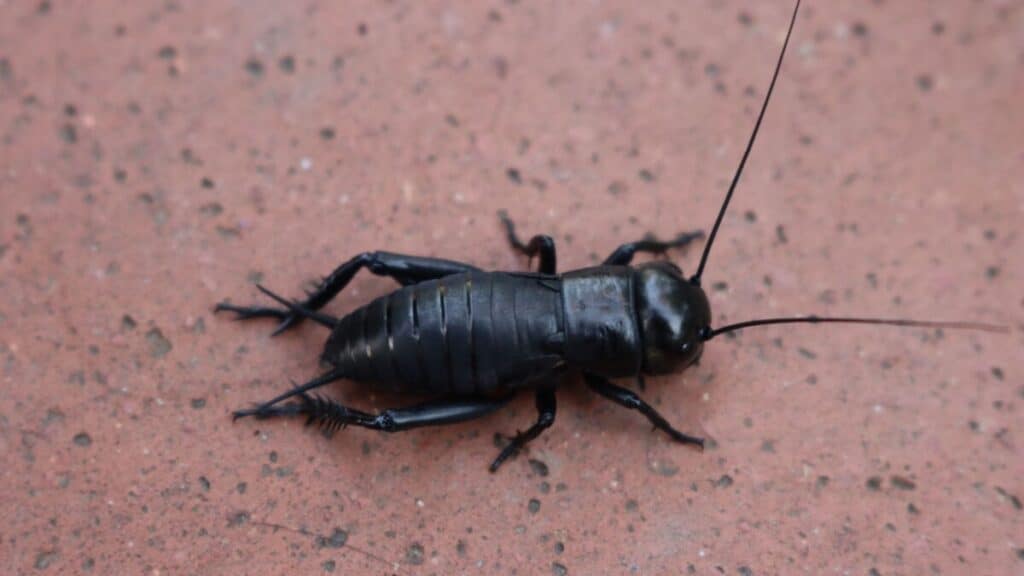
Black field crickets aren’t something that you need to worry about if you live in the United States. However, for completion’s sake, we are going to mention them.
Black field crickets live in Australia and New Zealand. These creatures absolutely love to eat plants. Seriously.
There are farmers out there who have had their entire crops wiped out by these guys. A lot of work goes into pest control when it comes to black field crickets.
Luckily, unless somebody ends up being rather foolish and introducing a plague of black field crickets to the United States, you are never going to need to care whether you have black field crickets hiding in your garden, ready to pounce on your plants.
Mole Crickets
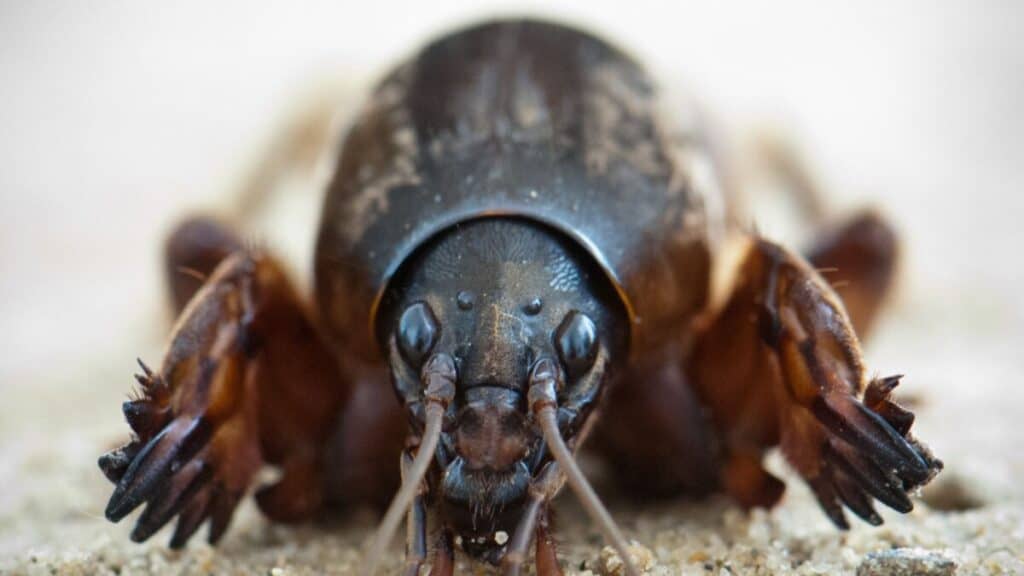
The crickets that are likely to be of the most concern will be mole crickets. As the name suggests, mole crickets live underground. They may poke their head up now and then, but they will mostly be hovering beneath the soil.
Mole crickets can be dangerous to your plants. You see, mole crickets absolutely love to chew on seeds. They are also known for biting into the roots of plants.
This is not going to be good if you have just planted a new set of seeds or, of course if you are enjoying your plants. Most plants (probably all plants) are not fans of their root system is destroyed.
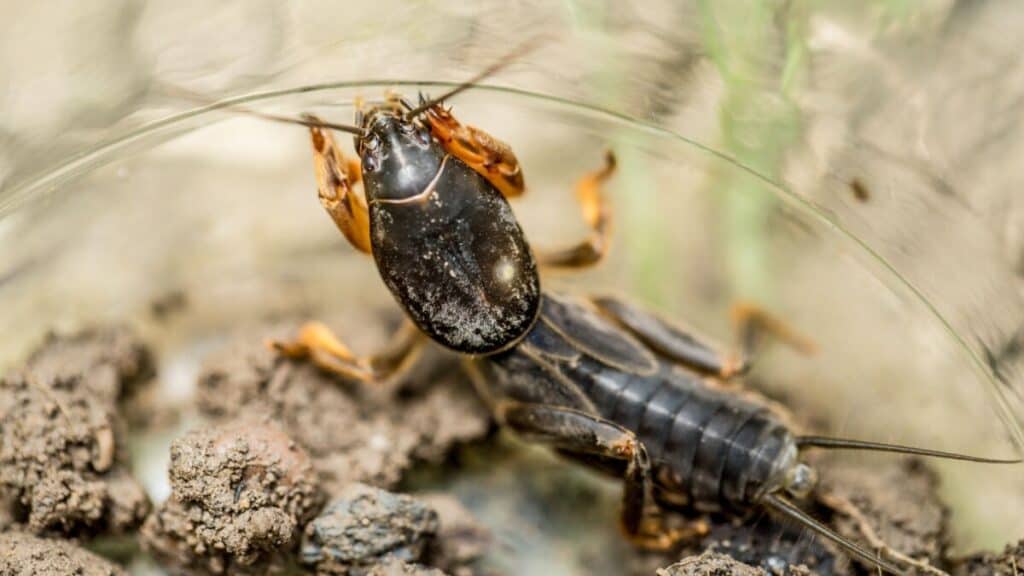
That being said, mole crickets are not going to be huge pests. The only time that you will really need to worry about them is if you get a massive infestation.
However, the ‘circle of life means that your mole cricket population won’t grow too high before those mole crickets become a snack for other predators.
Is It Beneficial To Have Crickets In Your Garden?
Absolutely! While there is always going to be the risk that crickets will destroy some of your plants, it is better to have them than not have them.
This is assuming that we are talking about the friendly green crickets. Black crickets (still only in Australia and New Zealand) are a big no.
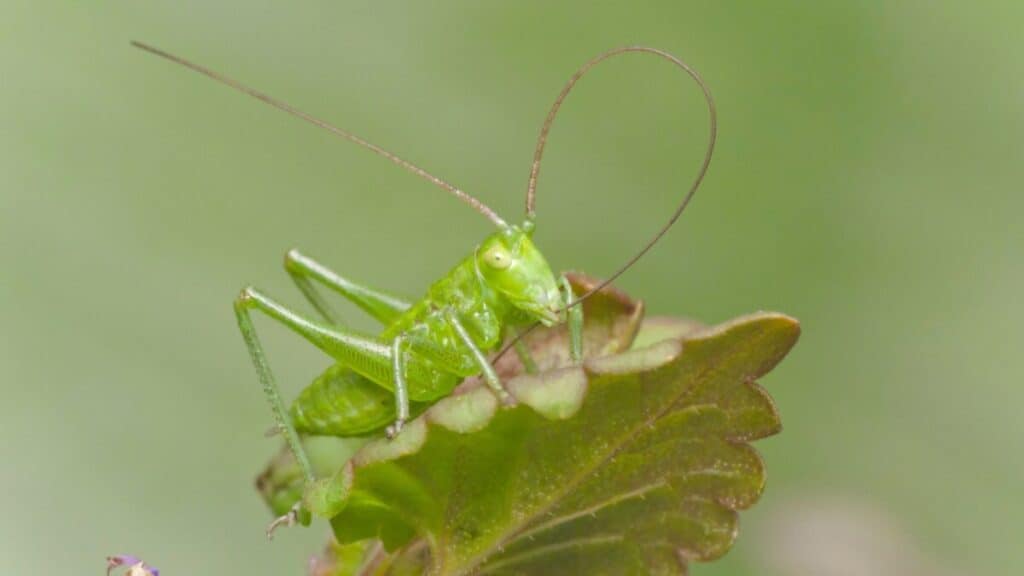
Mole crickets are OK, but you may want to be a little bit careful about having them hanging around in your garden.
Crickets Kill The Other Critters
Crickets may not be properly munching down on the plants in your garden, but you can bet your bottom dollar that there will be other creatures ready to have a feast.
As you will likely remember from before, crickets are omnivores. While they do tend to spend most of their time eating plant matter, they are not impartial to eating a bit of insect too.
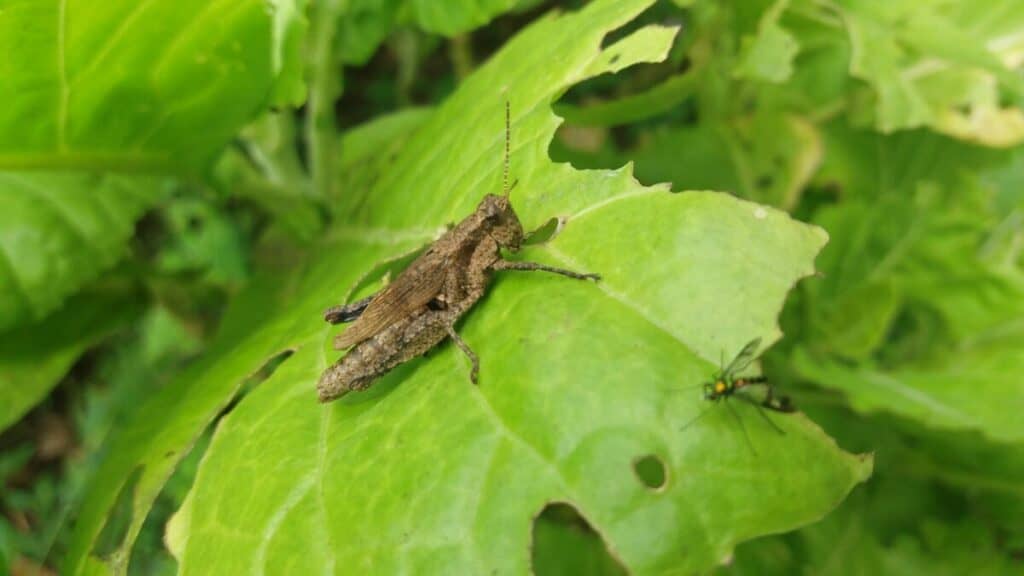
Crickets will gladly eat most of the smaller creatures that are likely to be doing damage to your plants. This means that as long as you have a good population of crickets wandering around your garden, you won’t have to worry too much about plant damage.
Although, once again, we do want to point out that if the crickets start to eat the plants themselves, then you may run into problems.
Crickets Will Eat Weed Seeds
Crickets will eat various seeds that drop down. This does have a few downsides, which we will discuss later on. However, with a properly maintained garden, crickets will only ever be eating weed seeds.
Obviously, the last thing that you ever really want to have happen in your garden is weeds growing. They can suck precious resources away from the most important plants in your garden.
Crickets Will Keep The Soil Bed Clean
Crickets will be spending most of their time eating the dead bits and pieces that fall off your plants. While this plant matter is eventually going to decompose into the soil, it is still nice that the crickets will be keeping things a bit cleaner.
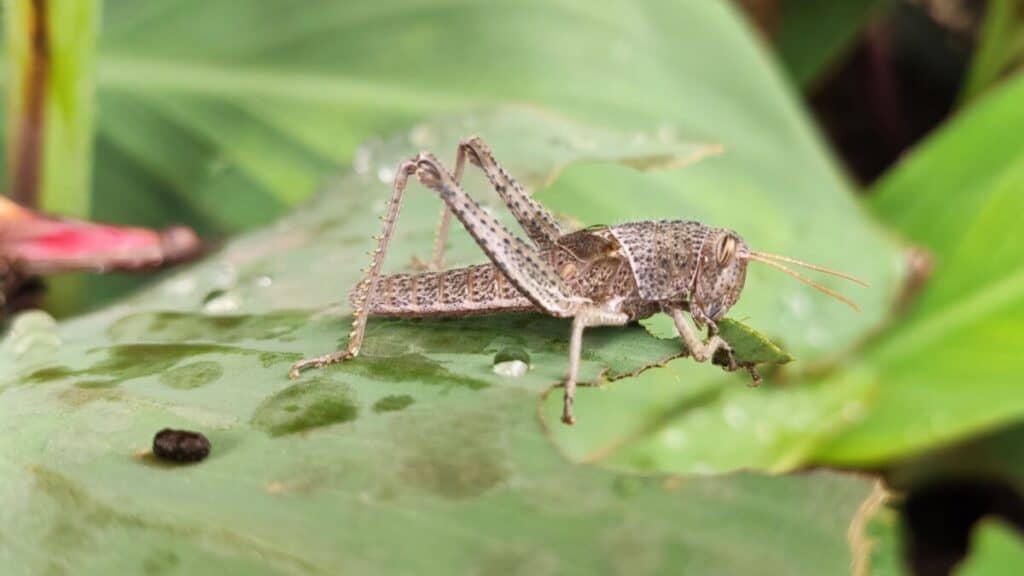
This is not the greatest benefit in the world, though. You do have to remember that crickets are not going to be eating a whole lot.
This means that you can’t expect them to clear a ton of leaves away. So, you probably will want to keep hold of your leaf blower!
When Might Crickets Pose a Risk To Your Garden?
While, for the most part, crickets aren’t going to pose too much of a problem to your garden (even mole crickets), there may be cases where you want to be a little bit wary of having them around.
You Have Planted New Seeds
As we mentioned previously, crickets love to eat seeds. It is one of their favorite activities.
This is all well and good if they are spending their time eating weed seeds. However, crickets don’t discriminate.
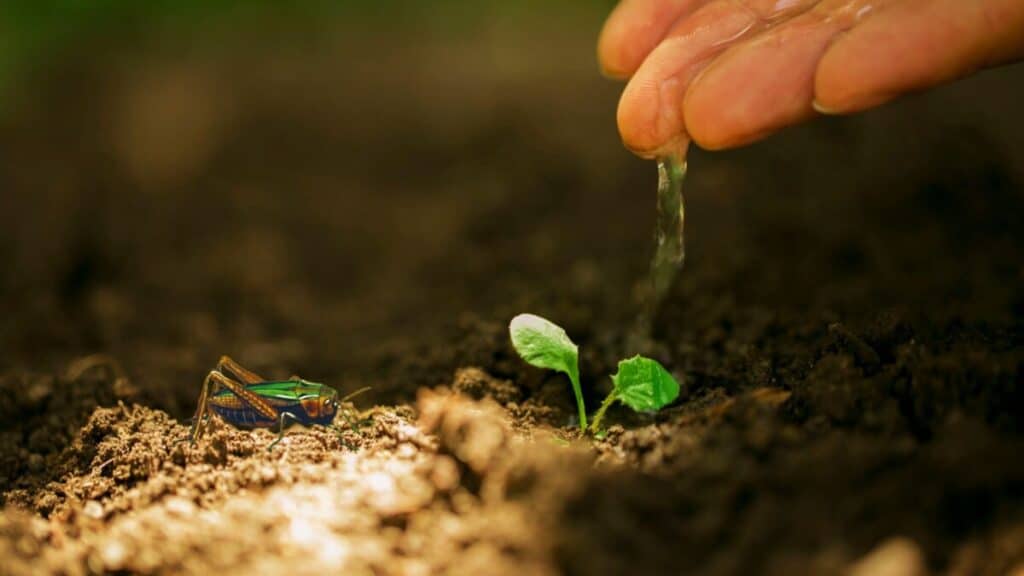
If you have freshly planted seeds in your garden, then they are probably going to try and eat them. This means that you may want to have some sort of pest control system that will stop the crickets from getting close to your freshly laid seeds.
You Are Planting Transported Seedlings
If you are moving seedlings into your garden, then you may also want to be a bit careful.
Seedlings tend to be a firm favorite of mole crickets, however, normal field crickets will probably be fine chewing on them as well.
Again, you are probably going to want to have some sort of system in place where you are preventing crickets from getting anywhere
You Have Too Many Crickets
For the most part, a cricket population should be able to stay in check. This is because predators will come in and eat the crickets, stopping their numbers from climbing too high.
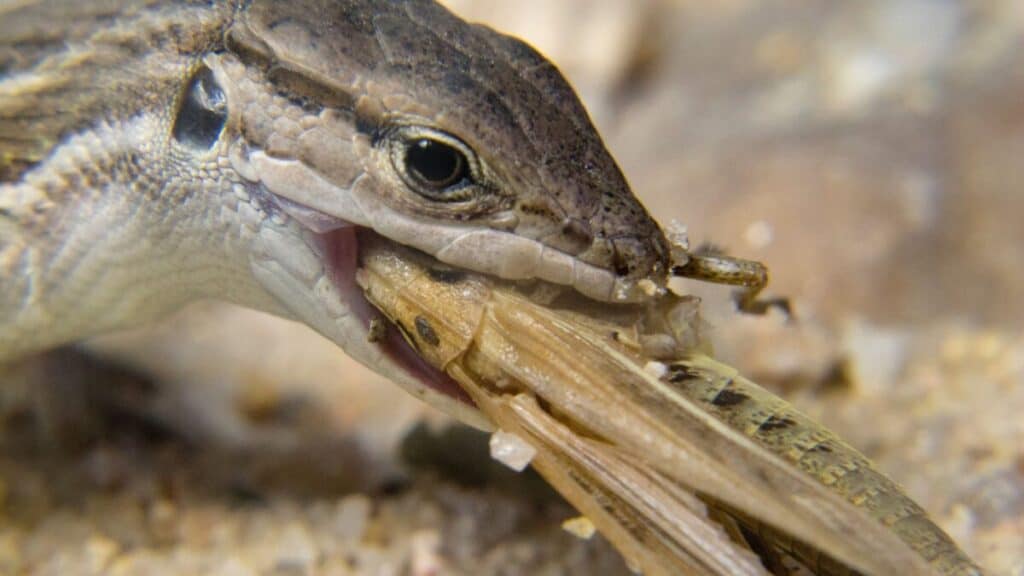
The problem is that, sometimes, there are no predators around. There is nothing to eat these crickets, which means that their population continues to expand.
If the cricket population expands, then there likely will not be enough dead plant matter for them to feast on. There likely won’t be enough insects for them to feast on. Instead, they are going to turn towards your plants.
If you notice that your plants are starting to suffer serious damage in your garden and you have crickets then, in most cases, it is because the cricket population has managed to climb to unsustainable levels.
How Can You Keep Crickets Away From Your Most Prized Plants?
There are a few ways that you can try and keep crickets away from your most prized plants. However, we can assure you, that if the crickets do want to eat them, there isn’t a whole lot that you can do short of extermination.
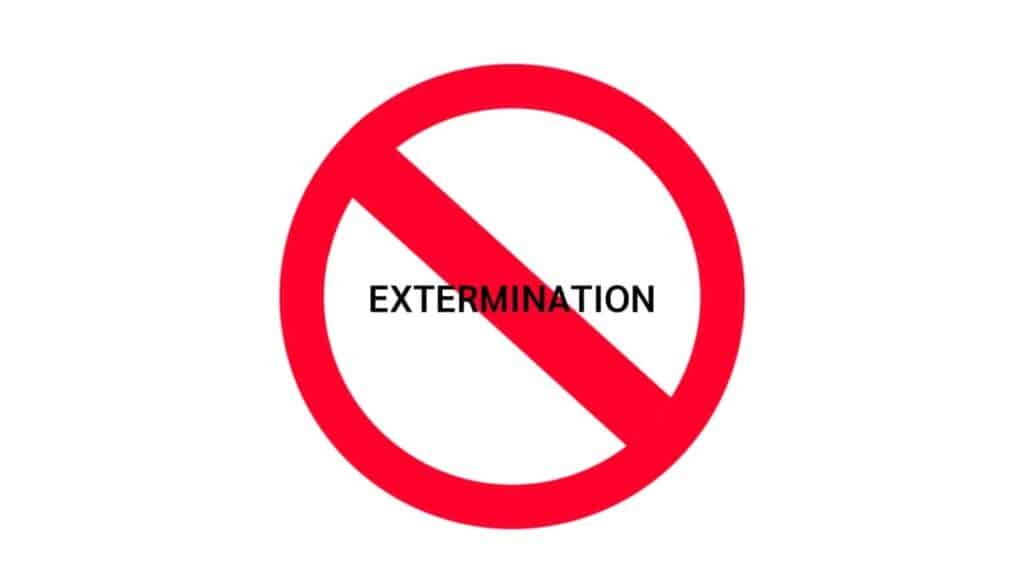
However, as you know by now, exterminating the crickets is never a good idea because this will allow even worse insects to thrive.
Create an Area For The Crickets
Crickets love darker areas with leaves. If you create an area of your garden with few plants (or ones that you don’t care too much about) with some leaves scattered about, then it is likely that the crickets are going to be spending more time there than anywhere else in your garden.
Some crickets will still hop towards your main plant areas, but there shouldn’t be so many that they cause a huge amount of destruction.
Install a Bird Feeder
If the cricket population seems to be getting out of control, then you will want to encourage some predators into your garden.
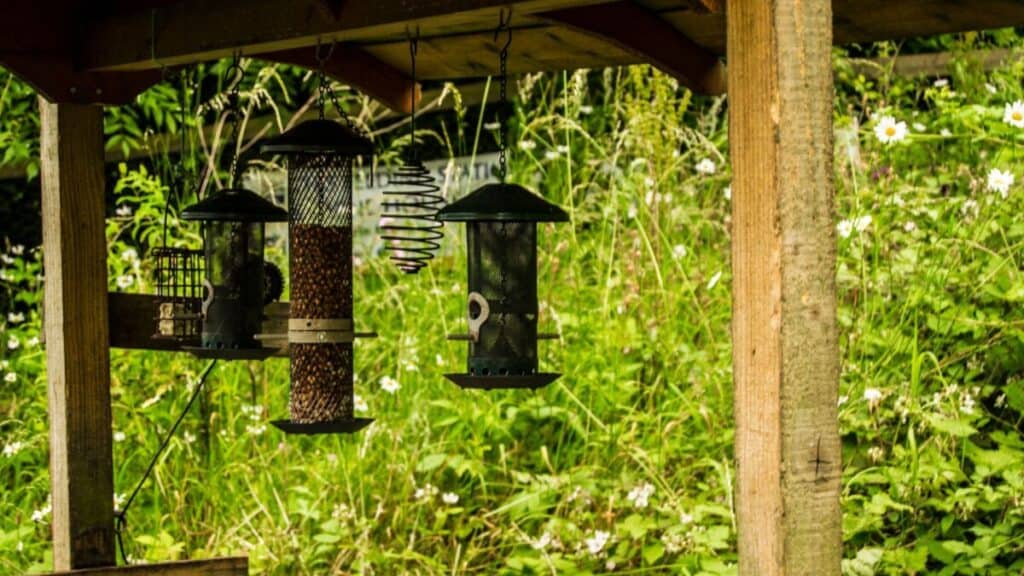
While there are plenty of predators that love a good cricket snack, birds are probably the easiest to entice in.
Install a bird feeder with some seeds, close to the plants that you want to protect. Crickets won’t even think about going near those birds. If they do, then they are probably going to end up as a main course.
Natural Cricket Repellant
A bit of chili powder mixed into some water makes a good natural repellant for crickets. Try not to spray it directly onto your plants, but you can spray it onto the soil that surrounds the plants. This will help to keep the crickets from venturing into that area.
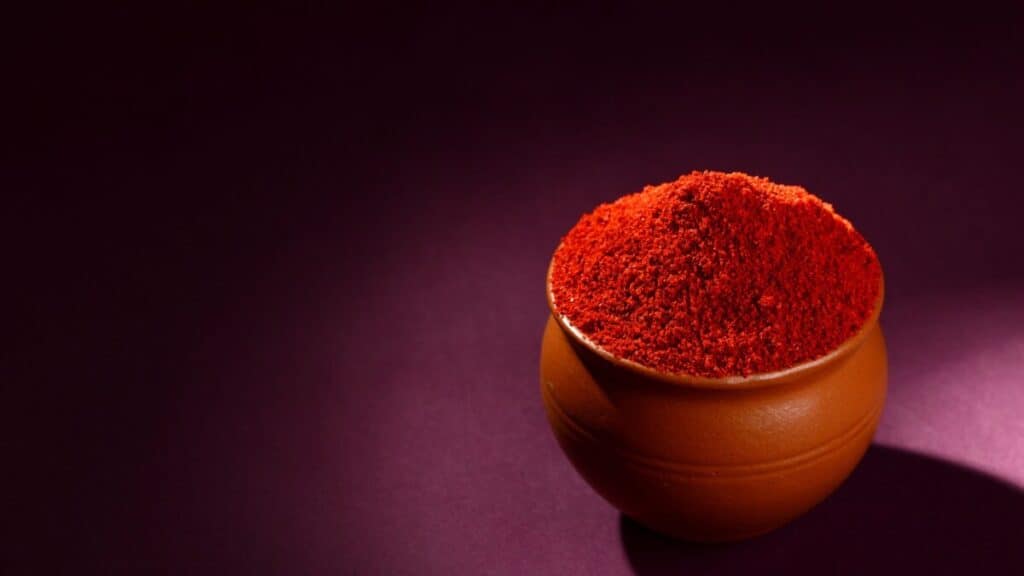
This isn’t something that we would really suggest spraying onto seeds or seedlings, just because you do not want to do anything that could end up inhibiting their growth. However, any one of the other methods would be fine in this situation.
Conclusion
Unless you live in New Zealand or Australia, chances are that crickets won’t do too much harm to your plants. While crickets do eat plants, it isn’t really their favorite food.
They would much prefer to eat pests that are smaller than them. They also love to eat dead plant matter. In most cases, the only time they are going to even bother coming close to your plants is when the cricket population is huge. This is easy to fix.
Alright, that’s it for this article, here are a few hand-selected articles that you might also find interesting reads:
Cockroaches That Look Like Crickets – Easy To MissDo Praying Mantises Eat Crickets? Lets find out!
7 Bugs That Can Survive Extreme Cold
References
https://www.yates.com.au/lawn-hub/problem-solver/crickets/
https://bbbseed.com/crickets-in-the-garden/
https://cals.arizona.edu/yavapai/anr/hort/byg/archive/managingcrickets.html
Recent Posts
Tiny Black Bugs in Bathroom NO WINGS: What They Are and What to Do!
Finding tiny black bugs in your bathroom can be uncomfortable, to say the least. Especially if they are persistent, or they appear in very large numbers, which they often like to do. When it...
Tiny Black Bugs in Plant Soil - What Are They & What To Do About It
A short horror story: You get a new houseplant. You do your best to take care of it. You’ve ensured that it has the right soil, the right amount of sun, it gets enough water. And then one day, you...

